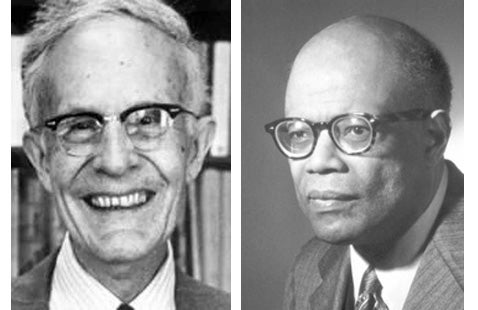Theodore W. Schultz and Arthur Lewis Shared 1979 Nobel Prize for Research into Agricultural Development and Underdevelopment

Theodore W. Schultz and Arthur Lewis were awarded the Nobel Memorial Prize in Economic Sciences in 1979 for studies of problems and issues in agriculture in the United States and developing countries.
The Royal Swedish Academy of Sciences wrote that “the main characteristic of Schultz’s studies in agricultural economics is that he does not treat agricultural economy in isolation, but as an integral part of the entire economy.” His analyses of productivity in agriculture demonstrated the importance of human resources for economic and social development and formed the basis of a detailed critique of developing countries’ industrialization policies and neglect of agriculture. Lewis, the Academy said, “tackled issues which are basic to the causes of poverty among populations in the developing world and to the unsatisfactory rate of economic development.”
At the time of the award, Schultz was the Charles Hutchinson Distinguished Service Professor in Economics Emeritus at the University of Chicago. Lewis was the James Madison Professor of Political Economy at Princeton University.
More information on these Nobel laureates


